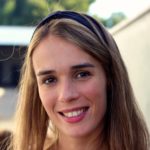Présentation
Join us on Google groups! KlebNET e-mail distribution list on Google groups. Please ask for registration, by explaining your interest in Klebsiella research or surveillance and providing your institution, so that the moderators can identify you. Communication within the network takes place through this Google group.
Rationale: Klebsiella, particularly Klebsiella pneumoniae (hereafter, collectively called Kp) is an opportunistic pathogen of humans and animals that now tops the ‘urgent threat’ lists of CDC, ECDC and WHO due to high rates of multidrug resistance. Kp can also play a pioneer role in the amplification of novel AMR mechanisms acquired from environmental microbes, which can then spread to other important bacterial pathogens, as exemplified with KPC-2 or NDM-1 carbapenemases.
Despite this, Kp does not currently feature as a target of surveillance efforts. Although Kp is generally viewed as ‘ubiquitous’, data on its distribution in healthy people, the environment, animals and the food chain are scarce, and the transmission of Kp and its AMR gene cargo between these potential sectors and hospitalized individuals is poorly understood.
We therefore created a network dedicated to identifying key knowledge gaps relating to Kp ecology and transmission, and to developing a One Health strategy for Kp surveillance. The project received funding from the H2020 EU JPIAMR 7th call on surveillance.
Strategy: Research on ecological distribution of Kp and on its transmission routes should, to be actionable, be guided by expected impact on implementation into surveillance and control programs. An optimal Kp surveillance strategy must be defined based on (1) Most advanced knowledge on the ecology, population biology and epidemiology of the pathogen, combined with (2) Actionability and practical aspects of the implementation of surveillance, in high-income as well as in low- and medium income countries (LMIC), and across sectors (clinical, animal, food).
Objectives: (1) To review current knowledge on Kp reservoirs, population biology and transmission dynamics, and to identify and prioritize gaps where further research is required; and (2) To issue recommendations on how Kp surveillance should be implemented and harmonized across environment, animals, food and hospitals, including both technical and strategic considerations.
Working groups currently include:
- The Methods working group
This group will be coordinated by Carla RODRIGUES (Institut Pasteur, Paris) and will deal with identification and detection methods for Klebsiella: culture media, qPCR, MALDI-TOF etc. One particular objective of this group will be to accelerate the dissemination and harmonization of methods, and to provide support to facilitate novel methods being tested among KlebNET partners.
- The Genomics working group
This group will be coordinated by Kat HOLT (Monash University, Australia) and will deal with genomic methods and tools (e.g., Kleborate, Kaptive) and platforms interoperability (BIGSdb-Pasteur, Pathogen.Watch and so on).
- The Epidemiology group
This group will be coordinated by Kelly WYRES (Monash University, Australia) and will deal with definition of MDR or hypervirulent sublineages, detecting emerging sublineages, defining their epidemiology, and how to integrate population biology research and surveillance activities to better track the dissemination of K. pneumoniae sublineages.
4. The Antimicrobial Susceptibility Testing (AST) group
This group will be coordinated by Guido WERNER (Robert Koch Institute, Germany). It will address the issue of heterogeneity of AST methodology and interpretation criteria used across activity sectors/world regions, the issue of comparability/harmonization, and AST methods developments and comparisons.
Membership: the KlebNET network initially gathered 31 leading experts in Kp in distinct sectors located in 12 different countries (Europe, Africa, North America, South America, Asia), described hereafter. Additional interested parties will be welcome to join, through applying for membership via the Google group forum (see above). Our aim is to develop a sustainable scientific and public health/One Health Klebsiella experts community, with the capacity to engage with and support public health, animal health or food safety stakeholders responsible for antimicrobial resistance surveillance, who are also welcome to join.
Klebsiella pneumoniae funded networks:
KlebNET creation was motivated by the need to create a ‘network of networks’ on Kp research and surveillance. It therefore includes members of previously funded projects, including:
BRISSE, Sylvain, Institut Pasteur, Paris, FR: coordinator of the MedVetKlebs project. He will coordinate the KlebNET project with assistance from Carla RODRIGUES.
FEIL, Ed Bath Univ, UK; coordinator of the SpARK project. He will additionally bring expertise in evolution, population genomics and molecular epidemiology.
GRUNDMANN, Hajo, DE, Director, Institute for Infection Prevention…, Uni. Freiburg. Initiator of the first EuSCAPE project (CRE surveillance, supported by ECDC). Emergence and dissemination of high risk clones, European patient populations.
HOYLAND LÖHR, Iren, Dept Med. Micr., Stavanger U Hospital, Norway; coordinator of NOR-KLEB-NET, which includes human, veterinary and marine sector; SAMUELSEN, Ørjan / Arnfinn SUNDSFJORD, Norw. Natl Unit on Resistance.
Kp genomics, transmission and modelling:
HOLT, Kathryn, U Melbourne (Australia) and London School of Hygiene and Tropical Medicine (UK). Kp population genomics, AMR, hospital acquired infections; bioinformatics tools to support genomic surveillance.
THOMSON, Nick, Group Head Wellcome Trust Sanger Institute, Pathogen Genomics (UK). Extensive experience in tech. transfert and training in the LMICs on genomic evolution and epidemiology of pathogens at different time scales; including Kp.
PIRES, Sara Monteiro, Risk-Benefit Research Group, DTU, DK. Methods to estimate the relative contribution of sources and routes of transmission of Klebsiella; source attribution approaches; link with DANMAP.
VAN SCHAIK, Willem, U Birmingham, UK. Biology and epidemiology of antibiotic-resistant hospital-acquired pathogens; expertise in microbiome-resistance gene dynamics, One-Health studies of transmission.
Kp in the human clinical sector:
GISKE, Christian, Karolinska Institutet, Stockholm, Sweden. Surveillance of antimicrobial resistance (advisor to ECDC; WHO Europe; EUCAST), expertise in antimicrobial susceptibility testing, clones, fecal carriage studies.
NAAS, Thierry, Univ. Paris 11 Medical School; director, Natl Reference Center (NRC) for Carbapenem resistance in Enterobacteriaceae; >20 year experience working on antibiotic resistance, detection of carbapenemases.
WOODFORD Neil, Public Health England, UK. Extensive expertise in resistant pathogens epidemiology.
Kp in other world regions and LMICs:
AVISON, Matthew; University of Bristol, School of Cellular & Molecular Medicine, UK. Kp antibacterial resistance mechanisms; access to data from large One Health transmission and selection studies in the UK and in Thailand.
BAKER, Stephen, The Wellcome Trust Asia and Africa Programme in Vietnam, Oxford U Clinical Research Unit (OUCRU); will provide access to knowledge on organisms and priorities from Southeast Asia.
COLLARD, Jean-Marc, Pasteur, Madagascar; Transfer of AMR Kp strains between humans, animals and the environment in different sectors (hospitals and urban/rural communities) in Low Income Countries.
LINCOPAN, Nilton, Department of Microbiology, Institute of Biomedical Sciences, U São Paulo, Brazil; coordinator of Bacterial Resistance Lab.; in Brazil and South America; One Health Brazilian Resistance (OneBR) network.
KARIUKI Sam, Deputy Director, Research and Development, KEMRI, Kenya. Epidemiology of enteric infections outbreaks, whole genome sequencing to better understand ecology and transmission dynamics of bacteria and antimicrobial resistance.
Kp in human carriage and animal, food and environmental sector:
MADEC, Jean-Yves, National Agency for Food, Environmental and Occupational Health & Safety (ANSES), France. Coord. National monitoring network (Resapath) for AMR in animals including wildlife & environment.
POMILIO Francesco, Head of Unit of Food hygiene, IZS, Teramo, IT. Will provide expertise on surveillance methods and networks in food and on Kp ecology, biodiversity and methods of analysis from food sources.
Other initial partners: GLASER, Philippe (FR), MØLLER NIELSEN, Eva (DK); MORRIS, Dearbhaile (IE); PIVETEAU, Pascal (FR); SASSERA, Davide (IT); IZDEBSKI Radosław (PL); Nicola HOLDEN (UK); Ruth ZADOKS (UK); Rob WILLEMS (NL); OPATOWSKY, Lulla (FR); RODRIGUEZ Carla (FR).
The list of partners grows regularly and the full list can be found on the google groups members page. You need to log in as a member to view the list.




